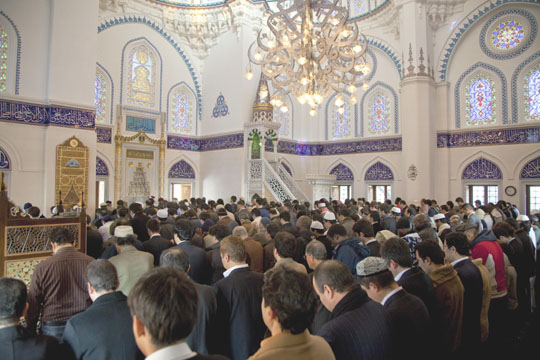
Rasa - visitors at one of the largest mosques in Japan have doubled in number since two Japanese were purportedly killed by ISIL Takfiri militants, reports say.
The Japanese tourists at the Tokyo Camii mosque in Shibuya Ward want to gain a better understanding of a religion that is constantly mentioned in the news in connection to horrific events occurring overseas, mosque officials said.
For mosque officials and educators, the growing interest provides a good opportunity to broaden knowledge in Japan about Islam beyond stereotypes.
“It is important to have a proper understanding of the Islamic world,” said Hiroshi Kazamaki, a 59-year-old teacher at a Kanagawa prefectural high school in Kawasaki who accompanied four graduates to the mosque on March 12.
According to Shigeru Shimoyama, a 66-year-old public relations official at Tokyo Camii, 20 to 30 Japanese people took part in weekend tours of the mosque mainly to satisfy their curiosity about the structure of the building.
But after Islamic State extremists posted online videos earlier this year showing the apparent slayings of freelance journalist Kenji Goto and company operator Haruna Yukawa, visitor numbers surged at the mosque, including a record high 100 on one day, according to Shimoyama, who started working for the mosque five years ago.
Shimoyama wants to prevent the spread in Japan of false notions about Islam stemming from the atrocities committed by the Islamic State and terrorist attacks abroad.
Mosque officials say the mosque received harassing phone calls immediately after the apparent killing of Goto, although many words of encouragement also came in.
“It seems that some people believe that Islam is a strict religion, but it is in fact a very lenient religion,” Shimoyama told 50 or so people, many of whom were Japanese, on a March 14 tour.
On the second floor of the mosque, the visitors observed a ceremony for Japanese people who were converting to Islam and a worshipping service. Women on the tour were required to wear head scarves at the site of worship.
The tour also included a two-hour lecture on worshipping and fasting.
Yuji Kinoshita and Ryo Hiraishi, both 18 from Tokyo’s Edogawa Ward, said they took the tour of the mosque to further develop their knowledge of world history, even though they had studied the subject at school.
The teenagers, who will enter university in spring, said some Japanese people believe that Islam is a violent religion. The two said the tour confirmed that such perceptions were wrong.
On March 5, about 30 teachers of civics classes visited the mosque for about five hours.
“The descriptions in textbooks are sometimes insufficient,” said Mikio Kaneko, 50, who teaches at the Kanagawa prefectural Hiratsuka Agricultural High School’s Hasse branch school. “The mosque officials introduced us to books on Islam, so we will study the books and utilize the knowledge in classes.”
R111/108/C/